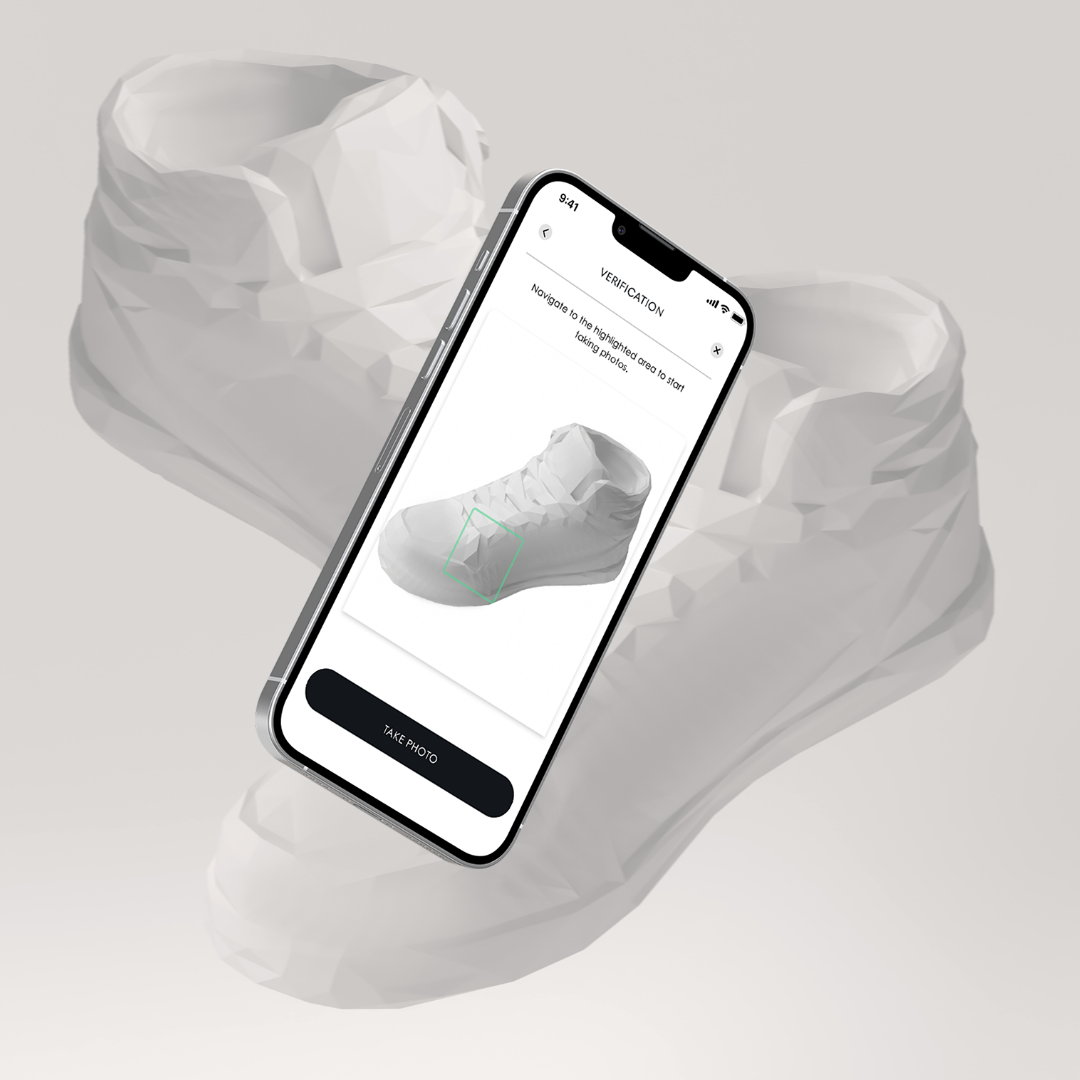The Fight Against Counterfeit Requires Advanced Technology
When counterfeiting is solely purchased physically, quality and location can be obvious indicators of fake products. Once counterfeits made their way into the digital world, distinguishing what is real and what is a falsified copy is much more time-consuming. In 2022 Certiologo found that 9 out of 10 fakes are sold online. According to a 2022 report by Mckinsey, counterfeiting, valued at around $500 billion a year globally, generates more than 60 percent of that value from fashion and luxury goods.
Online marketplaces might be an obvious source of potential fraud, but the growing popularity of social commerce is also creating a rise in sales of counterfeit fashion on platforms like Instagram. According to analytics firm Ghost Data, 20% of all fashion posts on the site feature at least one counterfeit item.
image of authentication | authentique app
Since 2020, sales of counterfeit goods through online marketplaces are expected to hit $1.8 trillion, which has prompted online marketplaces, like Amazon, to work on resolving fraudulent incidences. In 2021 alone, Amazon invested over $900 million and over 12,000 people to combat the counterfeit crisis. The effort has already stopped over 2.5 million attempts to create new selling accounts.
With the rise of counterfeit, luxury brands are now using blockchain technology as a tool for authentication. Many brands have begun introducing QR codes on their labels as an anti-counterfeiting strategy.
For luxury fashion brands, authentication checks must be quick, as customers have come to expect seamless transactions and fast delivery. Gucci, Louis Vuitton, and Chanel are the most heavily counterfeited brands within the counterfeit industry. Authenticating these items is crucial to luxury brands as protecting the value of their goods is what allows the brands to hold their luxury status.
Having a reliable and quick authentication process is crucial for luxury and resale brands as consumers need to know their items are being properly authenticated. Resale sites like Vestiaire Collective, The Real Real, and ThreadUp have seen a 100% increase in listings and are racing to authenticate products, leaving many products sitting on backlog. Training senior authenticators also take upwards of three months and require the brands to cooperate in training seminars adding to the difficulty in keeping up with demand.
authentique app
The Authentique app from The Ordre Group allows brands to authenticate products within minutes by placing a digital twin on the blockchain during the point of sale of the physical product with any smartphone. The digital twin or NFT lives in the Authentique app and can be transferred during the resale of the item for a guarantee of authenticity.
Blockchain technology using visual recognition software is the latest innovation to hit the fashion luxury space. This technology allows brands and consumers the satisfaction of virtual verification and provenance of the item.
With the activation of Authentique, the luxury goods industry is able to regain control of the market and decrease counterfeited items purchased and resold. The counterfeit industry is the largest criminal activity globally and amounts to an exorbitant amount of pollution per year. This industry also exploits children through unfair labor practices.


